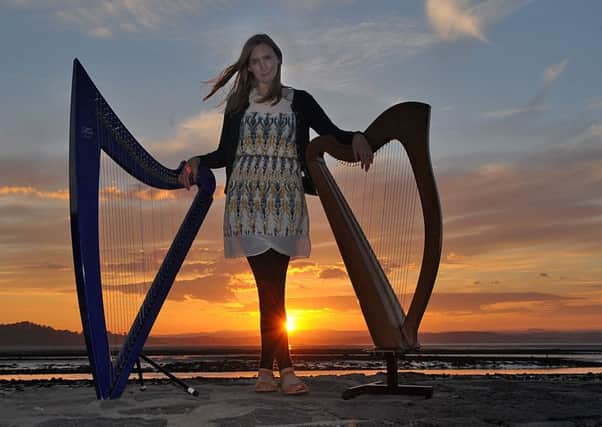Brian Ferguson: Gender imbalance on the trad music scene


In the basement of Oran Mor, on Byres Road, euphoric scenes are unfolding. The Elephant Sessions, one of the hottest new acts on the Scottish folk scene, are bringing a thrilling set to a close before a sweaty, sold-out crowd.
I notice that the increasingly delirious throng packed around me in front of the stage is predominantly female – shortly before a bra is tossed on the stage, landing on a microphone stand.
Advertisement
Hide AdAdvertisement
Hide AdAs the five-strong male musicians in the band take their bow alongside the three-piece all-women string section, who appeared out of the shadows for a couple of numbers, I ponder the complexities of a difficult but necessary debate which has been bubbling under for a while and has come to the boil during Celtic Connections.
At its heart is a belief by some female musicians and artists that Scotland’s trad music scene is becoming dominated by a clutch of all-male, and “very masculine”, bands.
A thoughtful, but tentative Facebook post by singer and harpist Rachel Newton in November over the nominees for the Scots Trad Music Awards raised a series of questions about the poor representation of women in the coveted “live act of the year” award, with just three out of 39 musicians in the various line-ups. Among these were why such “in your face” festival headliners were considered better live acts than those fronted or dominated by women.
She was inundated with responses from performers, many praising her for tackling an issue that has clearly been a matter of growing concern. In the early hours of Saturday morning at Glasgow School of Art, a series of all-male bands appearing at the late-night festival club is punctuated only by a Canadian outfit. At one point a woman next to me shouts at the stage: “Where are the women?” But later on I am almost trampled on in the rush of female fans for another highly-rated band from the current Scottish folk scene, Imar.
The audience demographic watching on is similar to the one in VisitScotland’s latest campaign, which deploys cutting-edge trad bands to target the lucrative domestic “millennials” market.
Female musicians and singers are notable by their complete absence from the official promo video, which promotes festivals the length and breadth of Scotland. VisitScotland’s campaign was launched less than a week after a fascinating and, at times, eye-opening discussion and debate - instigated by Rachel Newton and staged at Celtic Connections to tackle some of the issues raised by her initial concerns.
The male-dominated advance line-ups being promoted extensively at Celtic Connections for forthcoming festivals elsewhere suggest further evidence of a gender imbalance in the trad scene.
Advertisement
Hide AdAdvertisement
Hide AdYet Celtic Connections, which has inspiring female artists as its main 2017 theme, has programmed all manner of women musicians and singers.
What seems to be missing from the booming trad music scene are many all-female bands like Newton’s own outfit, The Shee. Introducing some form of quota system to exert influence on award nominees, festival programmers, promoters and broadcasters may seem a step too far to some. But with women in the most senior positions at the Scottish Government and Creative Scotland, the climate for securing change may never have been better.